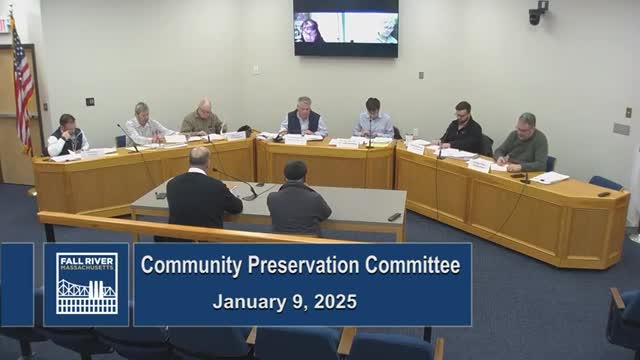Saint John’s Holy Ghost Club seeks $225,000 for sprinkler system to reopen event spaces
Get AI-powered insights, summaries, and transcripts
Subscribe
Summary
Leaders of the Saint John’s Holy Ghost Club on Jan. 9 asked the Community Preservation Committee for $225,000 to install a fire-suppression and sprinkler system in their 1975 Pleasant Street building so the nonprofit can legally use more of the space and increase fundraising capacity.
Leaders of the Saint John’s Holy Ghost Club on Jan. 9 asked the Community Preservation Committee for $225,000 to install a fire-suppression and sprinkler system in their 1975 Pleasant Street building so the nonprofit can legally use more of the space and increase fundraising capacity.
The request matters because installation of a sprinkler system could allow the organization to use basement and first-floor space year-round, provide cooking facilities and host fundraisers that are now seasonal — revenues the group says are needed to sustain ongoing repairs to a building severely damaged by a past fire.
Leonardo Diago, president of Saint John’s Holy Ghost Club, described emergency stabilization and incremental repairs the nonprofit has completed since acquiring the property after the 2016 fire. Committee members commended the preservation effort and raised questions about prior exterior changes that may disqualify the building from historic tax credits. One committee member noted the group has spent about $275,000 since 2017 on stabilization, including the roof, and the committee asked for a short-term capital-improvement plan showing how future historic-sensitive repairs (windows, gutters, chimneys, masonry and porches) will be addressed.
The historical-commission chair and several committee members warned that some past emergency repairs — replacement of copper gutters with vinyl, removal of chimneys and use of architectural asphalt shingles — make historic-tax-credit eligibility unlikely. "I don't think this property is ever gonna be eligible for historic tax credits," a member said, while other members said the committee could still fund targeted preservation work and urged the nonprofit to work with the Historical Commission on future design decisions.
Club board member Edwin Rowe said the organization holds fundraisers year-round and that installing suppression would let the club stop renting kitchen space elsewhere and use the building’s own facilities. Diago and board members agreed to produce a brief capital plan and a timeline for prioritized work and to meet with Historical Commission staff; the committee asked for that plan within roughly two weeks so members can consider it at the next deliberation meeting.
The committee did not vote on funding at the Jan. 9 hearing.
